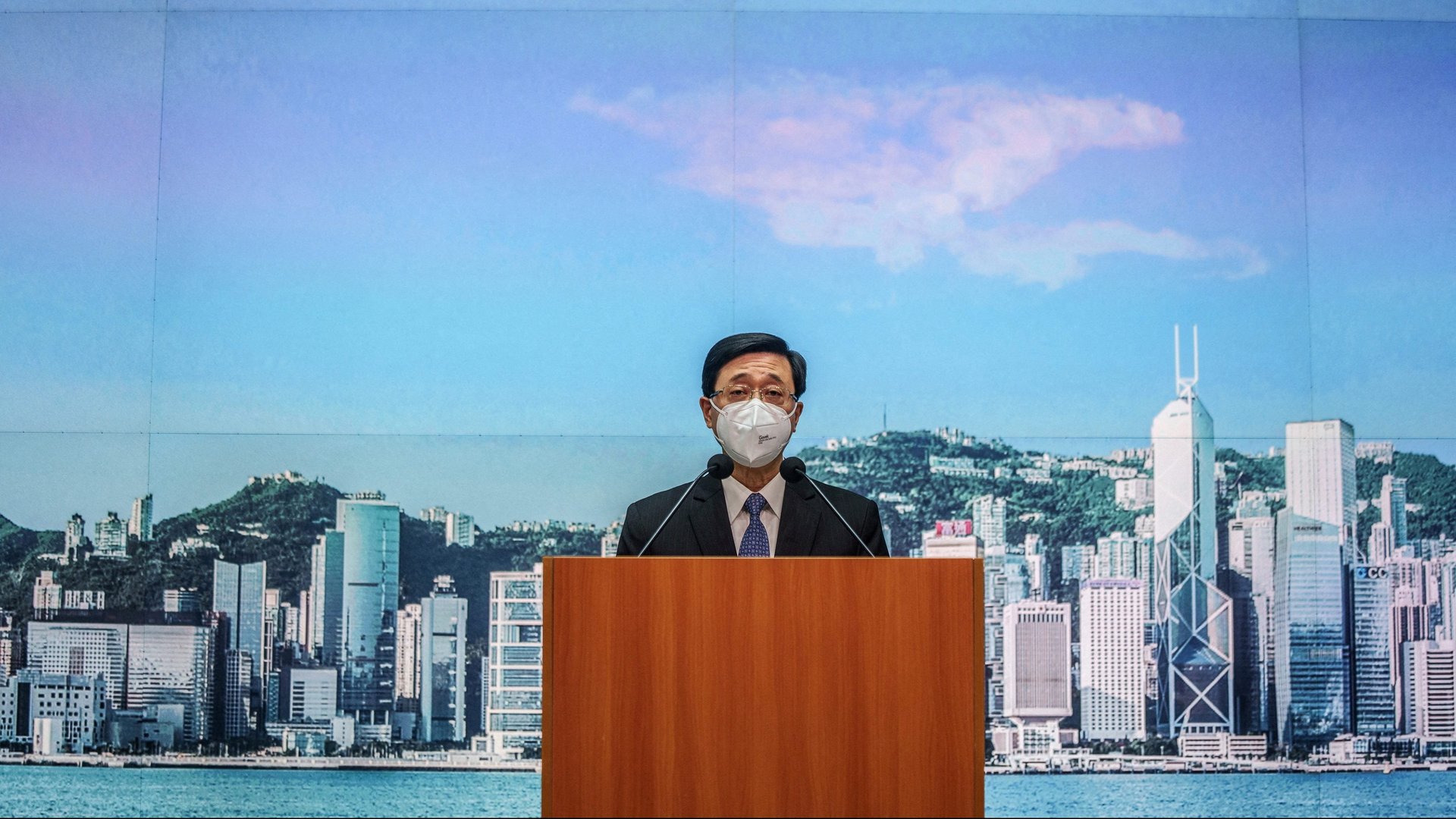Beijing’s pick for Hong Kong chief executive can win without YouTube
Google said today (April 20) it shut down the YouTube campaign channel of John Lee, who is likely to replace Carrie Lam as Hong Kong chief executive following next month’s election.


Google said today (April 20) it shut down the YouTube campaign channel of John Lee, who is likely to replace Carrie Lam as Hong Kong chief executive following next month’s election.
Alphabet, Google’s parent company and the owner of YouTube, said in a statement it took down Lee’s YouTube channel to comply with US sanctions over the Hong Kong official’s role developing and enforcing the city’s national security law. Lee’s Facebook page is still up, but parent company Meta said they shut down the candidate’s access to its payment services.
While these moves limit Lee’s ability to disseminate campaign messages to the public, they’re unlikely to have any real bearing on the election, as the pro-Beijing candidate is the only one running for the position.
Lee accused the US tech companies of being hypocritical in their decision to shut down his accounts, but the stifling of speech is more significant for the people of Hong Kong, who have seen press and internet freedom in the region diminish over the past few years. The pro-democracy paper Apple Daily closed last June, and a number of websites have been blocked or censored under the national security law.
Why Lee was sanctioned by the US
Lee was one of 11 individuals sanctioned by the US in August 2020 for “undermining Hong Kong’s autonomy and restricting the freedom of expression or assembly of the citizens of Hong Kong.”
As Hong Kong’s security secretary, he played a central role cracking down on pro-democracy protests in the city in 2019. While the protests were spurred by opposition to a law that would have allowed extraditions to mainland China, they grew into a much larger movement against Chinese influence in global politics. Lee oversaw the arrest of at least 200 people under the city’s Beijing-drafted national security law, which was passed in 2020 and sought to crack down on dissent.
Public has little say in the Hong Kong chief executive’s election
Lee has enlisted nearly 150 businessmen and politicians to support him ahead of the May 8 election, but the broader public won’t have much say in the final outcome. Hong Kong’s leader isn’t chosen through a popular vote, but rather by a committee of roughly 1,500 members, many of whom are openly pro-Beijing. So while candidate John Tsang had a robust social media presence and broad popular support during his 2017 campaign for chief executive, the job went to Carrie Lam, who was seen as friendlier to Beijing.
Similarly, there’s little chance that Lee’s success will hinge on his social media presence or campaigning strategy. As the only candidate confirmed by the Hong Kong government, he’s already received support from more than half of the selection committee.